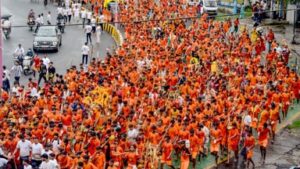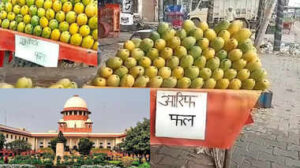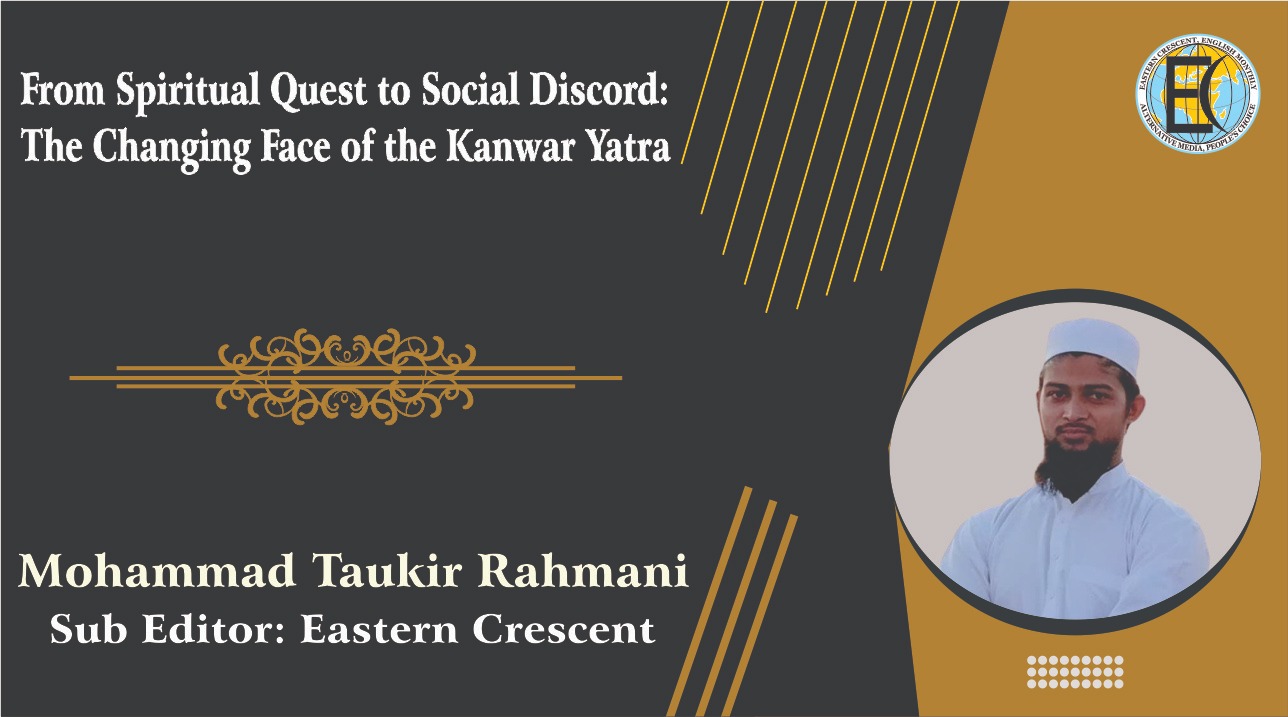From Spiritual Quest to Social Discord: The Changing Face of the Kanwar Yatra
Mohammad Taukir Rahmani
EC Exclusive
The Kanwar Yatra is an annual pilgrimage cherished by the devout followers of Shiva. Every year, during the auspicious monsoon month of Shravan (typically falling between July and August), millions of pilgrims, known as Kanwariyas, embark on this sacred journey. They travel to revered sites such as Haridwar, Gaumukh, and Gangotri in Uttarakhand to collect holy water from the sacred Ganges River. This consecrated water is then reverently carried back to their local Shiva temples, where they perform the Abhishek, a ritualistic bathing of the Shiva Lingam, symbolizing their deep devotion and faith.
Hindu devotees of Shiva travel for spiritual purity. The journey can be long and arduous, often involving walking hundreds of kilometers. Despite the physical challenges, it is undertaken with a sense of devotion and communal camaraderie.

The purpose of this Yatra is to purify oneself by overcoming physical challenges without harming anyone, regardless of religion, caste, or color. The Yatra used to proceed with peace and tranquility, serving solely as an expression of love and devotion towards Shiva. However, under the new government, which has now been in power for quite some time, the Yatra has deviated from its original purpose. It has become a means of causing harm to the public, socially ostracizing marginalized groups, clashing with pedestrians and travelers, and demolishing the shops of the poor and the homes of the weak with bulldozers. This is deeply saddening and concerning. It stains society and wounds the hearts and sentiments of true Hindus and devotees.

On July 22, 2024, the Supreme Court passed an interim order staying the enforcement of directives issued by the Uttar Pradesh and Uttarakhand governments. These directives required food stalls along the Kanwar Yatra route to display the names and other identity details of their owners and employees. The Supreme Court found that the police could not enforce these directives as they restricted freedoms without proper legal backing. The court clarified that food stalls could display the kind of food they sell but should not be compelled to display the names or identities of their owners or employees.

In a democratic country such as India, where billion people live with different castes, colors, and languages, social and religious harmony must be maintained; there should be no deficiency of it. And it all depends on government administration. But the problem is that the government itself is involved in such atrocities. In a situation where the authorities are involved, it lies upon each intellectual individual in the country to overcome the situation. Only this direction from the Supreme Court is not enough to uphold social and religious harmony because these directives may cause great means of destruction and disguised Yatrik atrocities may harm the purpose of this Yatra. The order of the Supreme Court is appreciable, but it must be enforced against the people and authorities who commit such crimes.











Your blog is a breath of fresh air in the crowded online space. I appreciate the unique perspective you bring to every topic you cover. Keep up the fantastic work!